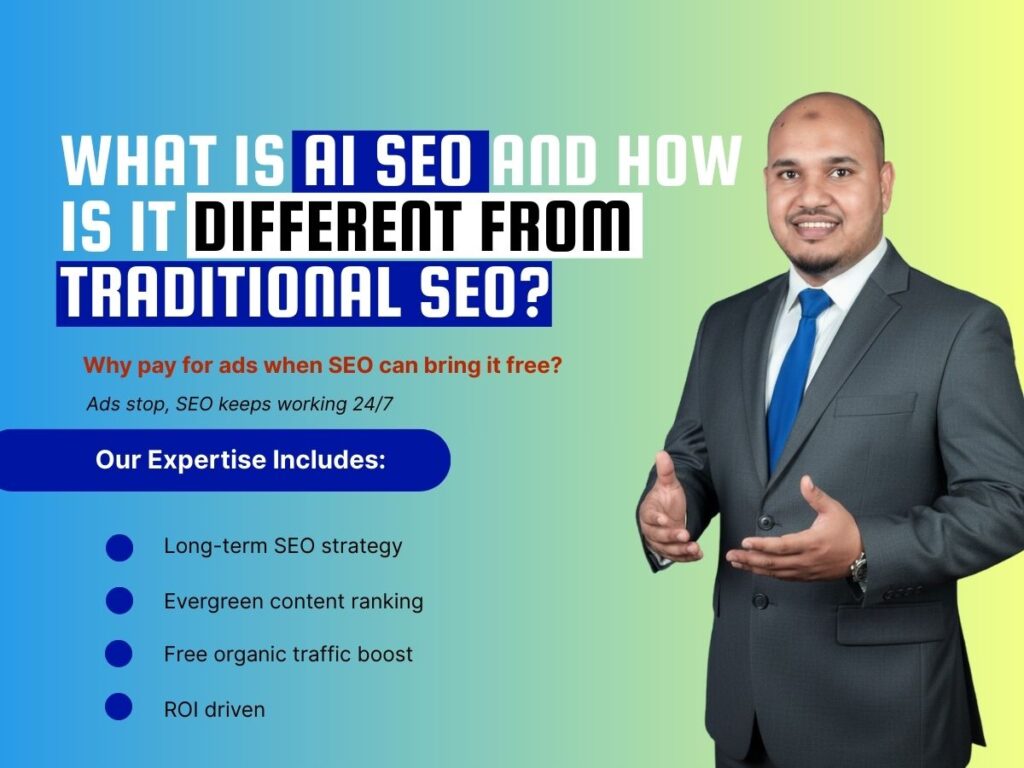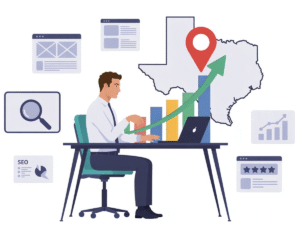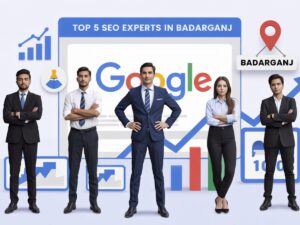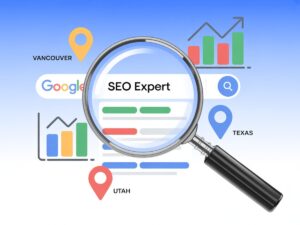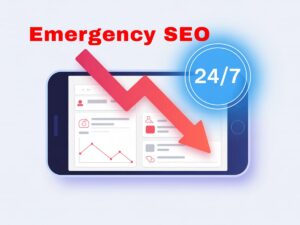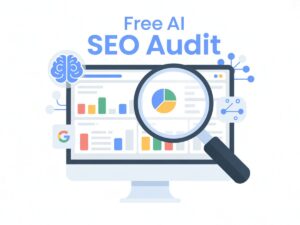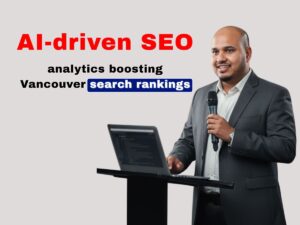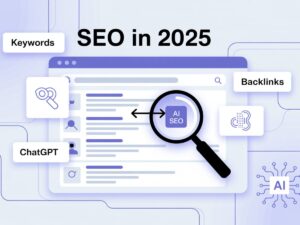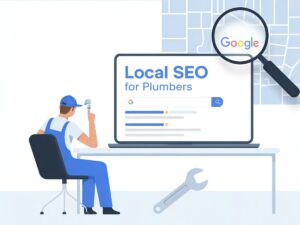Search engine optimization (SEO) is a cornerstone of any effective digital marketing plan. It’s the practice of improving your website to increase its visibility when people search for products or services related to your business. But the world of SEO is changing. The rise of artificial intelligence is introducing new tools and strategies that are transforming how we approach optimization.
This post will explore the evolving landscape of search. We will define both AI SEO and traditional SEO, highlight their key differences, and discuss the benefits and challenges of integrating artificial intelligence. You will learn how these two approaches can work together to create a powerful, future-proof SEO strategy.
What is AI SEO?
AI SEO is the process of using artificial intelligence and machine learning technologies to automate and enhance search engine optimization tasks. Instead of relying solely on human analysis, AI SEO leverages powerful algorithms to analyze vast amounts of data, uncover hidden patterns, predict trends, and make smarter optimization decisions.
Think of it as having a super-intelligent assistant that works around the clock. AI-powered tools can help with everything from identifying high-value keywords and creating content briefs to optimizing technical SEO and personalizing user experiences. These systems process information at a scale and speed that is impossible for humans to match, offering a significant competitive advantage. Popular examples of platforms incorporating AI include SEMrush, Surfer SEO, and Jasper.
What is Traditional SEO?
Traditional SEO refers to the established, manual methods of optimizing a website for search engines that have been used for years. This hands-on approach involves a human expert making strategic decisions based on their experience, research, and analysis of search engine guidelines.
The core components of traditional SEO include manual keyword research, on-page optimization (like title tags and meta descriptions), technical audits, content creation, and manual link building outreach. While highly effective, these methods can be time-consuming and require constant effort to keep up with the ever-changing rules of search engines. The primary challenge of traditional SEO is its scalability; as a website grows, the manual workload can become overwhelming.
Key Differences Between AI SEO and Traditional SEO
While both share the same goal of improving search rankings, their methods are quite different. Understanding these distinctions is key to building a modern strategy.
Data Analysis and Insights
Traditional SEO involves manually exporting data from tools like Google Analytics and Search Console, then sifting through spreadsheets to find insights. AI SEO, on the other hand, uses machine learning to analyze massive datasets instantly. It can identify complex correlations and predictive analytics that a human might miss, providing deeper, more actionable insights.
Automation vs. Manual Effort
A major difference lies in SEO automation. Traditional SEO is labor-intensive. Every keyword must be researched, every backlink pursued, and every piece of content optimized by hand. AI SEO automates many of these repetitive tasks. It can generate keyword clusters, suggest internal linking opportunities, and even draft content outlines, freeing up human experts to focus on high-level strategy and creativity.
Content Personalization
Traditional SEO typically targets broad audience segments with generalized content. AI takes this a step further by enabling personalized content delivery. By analyzing user behavior, AI can help tailor website experiences to individual visitors, showing them the most relevant articles, products, or offers. This leads to higher engagement and conversion rates.
Speed and Efficiency
The speed at which you can act on data is a huge competitive factor. A traditional SEO audit might take weeks to complete. An AI-powered tool can crawl a site and identify critical issues in minutes. This efficiency allows businesses to implement fixes and adapt their strategies much faster than competitors relying solely on manual methods.
Adapting to Algorithm Updates
Google is known for its frequent algorithm updates, which can cause rankings to fluctuate dramatically. Traditional SEO involves reacting to these changes after they happen. AI SEO, with its predictive capabilities, can often anticipate shifts in search engine priorities, allowing for a more proactive approach to optimization and helping to protect your site from negative impacts.

Benefits of AI SEO
Integrating artificial intelligence into your SEO workflow offers several powerful advantages:
- Improved Accuracy: AI removes much of the guesswork from SEO. It provides data-driven recommendations for keyword targeting and content optimization, increasing your chances of ranking.
- Enhanced User Experience: By helping you understand user intent more deeply, AI enables you to create content and site structures that better serve your audience, leading to longer visit times and lower bounce rates.
- Greater Efficiency: Automating routine tasks saves countless hours. This allows your team to focus on creative problem-solving and strategic planning, ultimately boosting productivity and ROI.
- Proactive Strategy: AI tools can identify emerging trends and opportunities before they become mainstream, giving you a first-mover advantage.
Challenges of AI SEO
Despite its benefits, adopting AI SEO is not without its hurdles:
- Initial Investment: The most advanced AI-powered tools often come with a significant subscription cost, which can be a barrier for small businesses.
- Learning Curve: Using these sophisticated tools effectively requires training. Marketers need to learn how to interpret AI-generated data and integrate it into their existing strategies.
- Over-reliance on Automation: AI is a tool, not a replacement for human expertise. Relying too heavily on automation without strategic oversight can lead to generic, low-quality content that fails to connect with your audience.
- Data Quality: The output of any AI system is only as good as the data it is fed. Inaccurate or incomplete data can lead to flawed recommendations.
How to Get Started with AI SEO
Ready to bring AI into your optimization efforts? Here is a simple, four-step process to get you started.
- Define Your Goals: First, determine what you want to achieve. Are you trying to increase organic traffic, generate more leads, or improve content quality? Clear goals will help you choose the right tools.
- Choose the Right Tools: Research different AI SEO platforms. Some excel at content optimization, while others focus on technical SEO or keyword research. Select tools that align with your specific goals and budget.
- Integrate with Your Strategy: Don’t discard your traditional SEO methods. Instead, use AI to enhance them. Use AI for data analysis and task automation, but let human creativity guide your overall brand voice and high-level strategy.
- Monitor and Adapt: AI provides insights, but you still need to measure the results. Track your key performance indicators (KPIs) to see what’s working. Use the feedback to continually refine your approach.
The Future is a Hybrid Approach
AI is not here to replace SEO professionals; it’s here to empower them. The most successful digital marketing strategies of the future will not be “AI SEO” or “traditional SEO,” but a hybrid model that combines the best of both worlds. By pairing the analytical power and efficiency of artificial intelligence with the strategic thinking, creativity, and empathy of a human expert, you can achieve results that neither could accomplish alone.
Start exploring how AI tools can streamline your workflow and provide deeper insights. By embracing this evolution, you can build a more resilient, effective, and forward-thinking SEO strategy that drives sustainable growth for your business.
Frequently Asked Questions (FAQs)
AI SEO uses artificial intelligence tools and machine learning technologies to automate and optimize various tasks for improving website visibility in search engines.
The main difference is automation and data analysis. AI SEO automates tasks, analyzes huge datasets for predictive insights, and adapts to changes faster, whereas traditional SEO relies on manual human effort for research, analysis, and implementation.
Key benefits include improved accuracy in decision-making, faster results, the ability to deliver personalized content to users, and better adaptability to search engine algorithm updates.
Yes, challenges include the high cost of advanced tools, a learning curve for marketers unfamiliar with the technology, and a heavy dependence on high-quality data for accurate results.
You can start by identifying your SEO goals, selecting the right AI-powered tools for your needs, integrating them into your existing strategy to enhance manual efforts, and consistently monitoring your performance to make adjustments.

